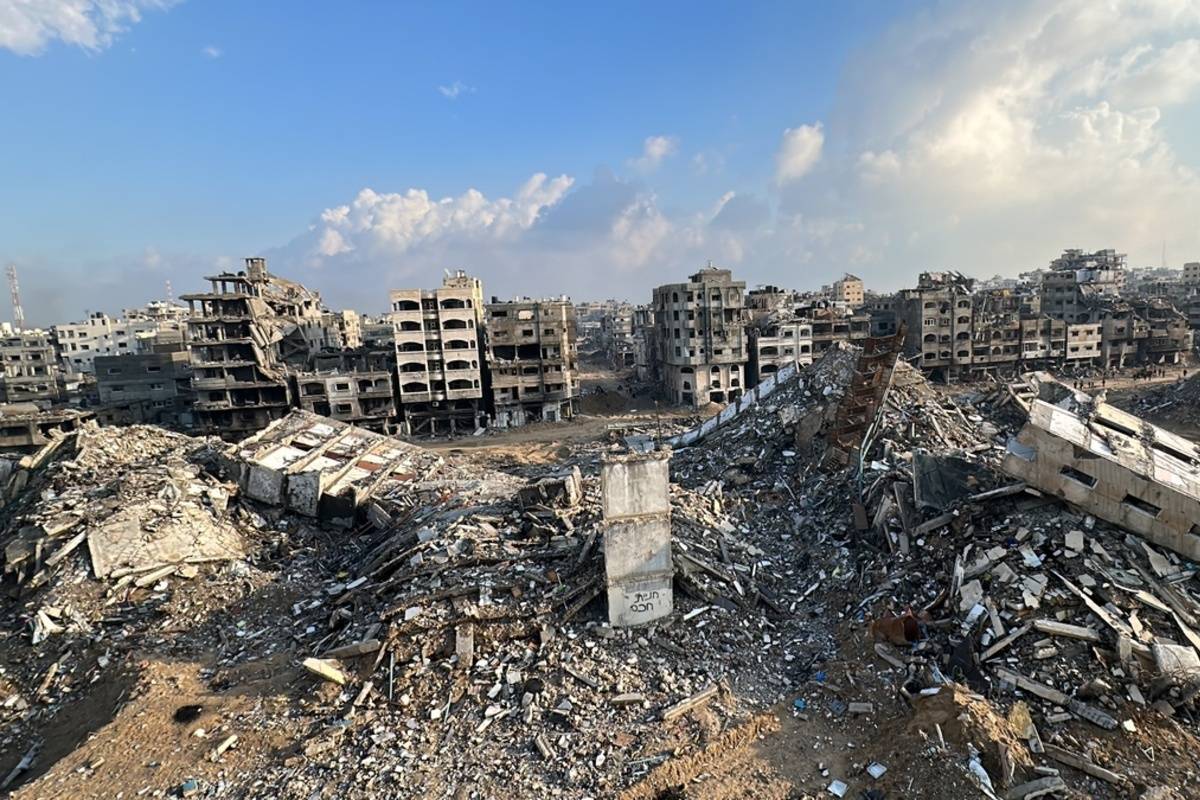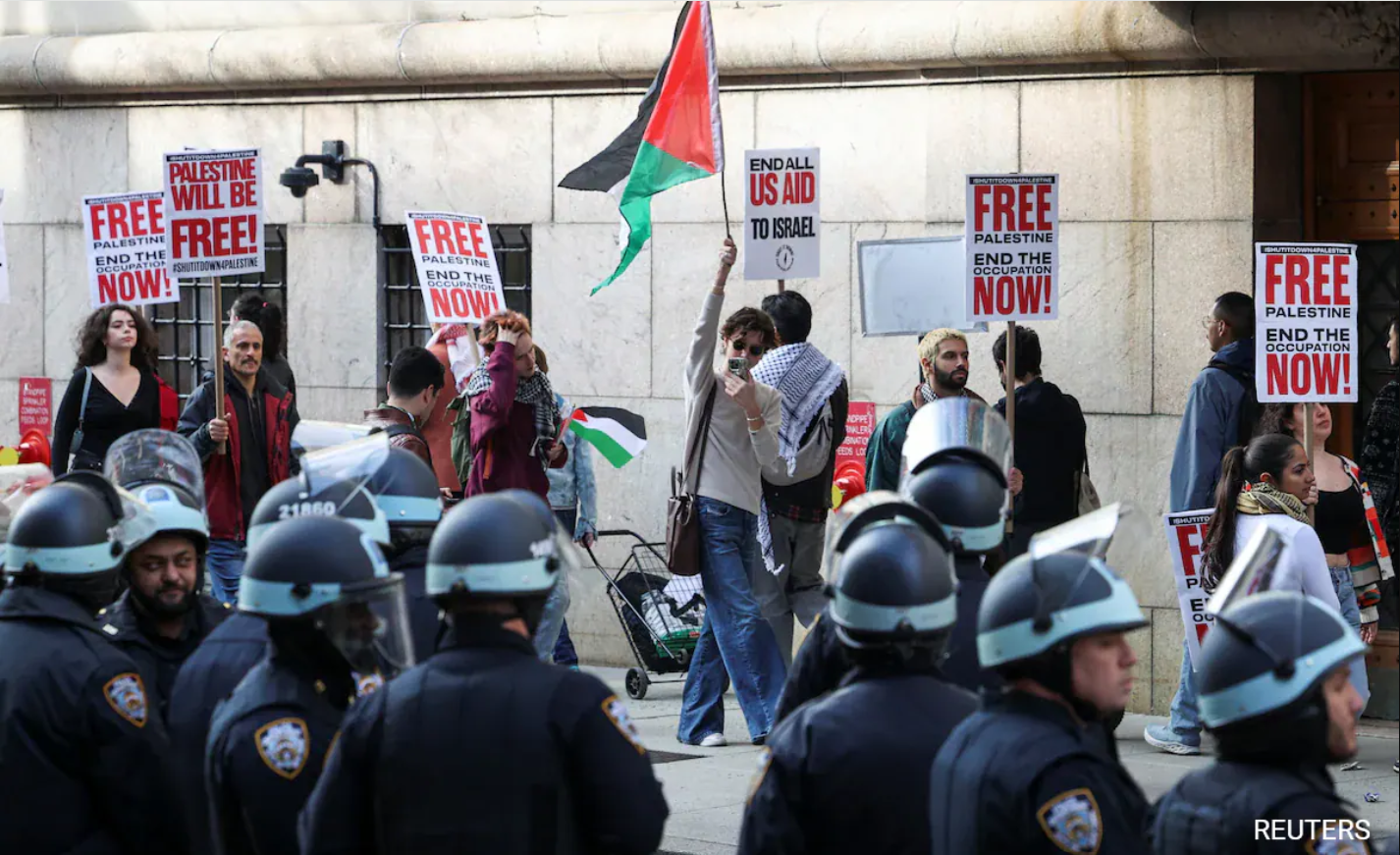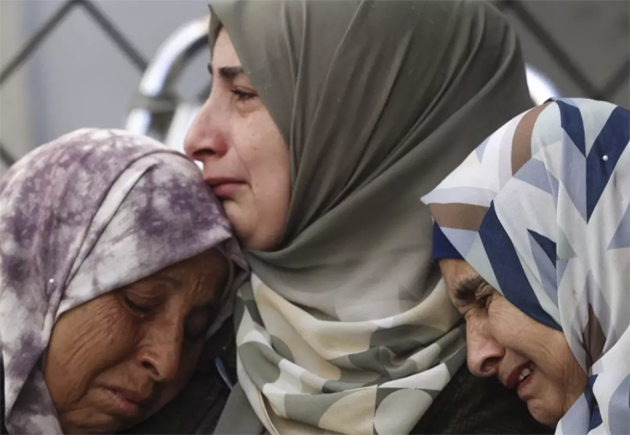Can you describe the situation in West Bank and Gaza Strip especially in the refugee camps?
The deteriorating conditions in the West Bank and Gaza Strip after 16 months of strife, closures and sanctions has compelled the United Nations Relief and Works Agency for Palestine Refugees to appeal to the international community for $117 million in emergency funds for 2002. UNRWA will use the emergency funding to provide food aid, medical care and work programmes to alleviate the worst of the suffering among the 1.4 million refugees in the occupied Palestinian territory.
Many thousands of Palestinians have lost their livelihoods because of closures imposed on their communities - there are now 72 permanent Israeli military checkpoints in the West Bank and nine in Gaza. The destruction of agricultural crops has added to the hardship and fully half the population is now living in acute poverty. This rises to 65 per cent of the refugee population in Gaza.
Can you tell us a bout the restrictions imposed by the Israeli army on UNRWA activities?
Those whom UNRWA serves are among the communities worst affected by the closures and sanctions whether in terms of physical casualties, loss of livelihoods, damage to property and infrastructure or access to basic services. More than half of the 843 Palestinians killed by the middle of January 2002 were refugees registered with UNRWA. Thousands more have been injured.
Tragically 29 children enrolled in UNRWA's schools have been killed and another 800 have been injured. Teachers have not been able to get to their schools and the combination of lost days and trauma has caused exam results to plummet. Hardship is causing university students to drop out of class.
Ever tightening restrictions on freedom of movement, prolonged curfews, military incursions deep into population centers, house demolitions, the destruction of agricultural crops and widespread damage to infrastructure have exacted an alarming toll: economic, social and psychological.
UNRWA, whose sole concern is the welfare of the Palestinian refugees, has not been spared. Repeated and prolonged curfews and closures have led to disruptions in its services, particularly in the West Bank. Its installations have come under fire, several members of its staff have been humiliated and others beaten or injured in the course of carrying their duties. UNRWA has been unable to deliver 42 ten-tonne truckloads of supplies in storage in its warehouses in Jerusalem to the Gaza Strip, because of procedures at the Karni border crossing entailing the off-loading and on-loading of goods. Medical supplies for more than half the value of goods in storage.
Tight closures imposed by the Israeli security forces have severely affected access to health and education services. In the Gaza Strip medical consultations at UNRWA clinics rose by 21 per cent and dental consultations by 18 per cent as refugees increasingly turned to the Agency's services. In the West Bank, the crisis has led to 10.4 per cent in the incidence of low birth weights and a 52 per cent in the stillbirth rate. The numbers of refugees seeking secondary health care in hospitals where UNRWA contracts services on their behalf have fallen by 18.4 per cent in the West Bank, as refugees are often unable to access these hospitals because of closures.
The vulnerability of the refugees comes mainly from their high dependence upon work as unskilled or semi-skilled labour, particularly in Israel, where they are extremely susceptible to closures. With very little chance of work, and traditional alternative safety nets, such as savings, borrowing, buying on credit and assistance from extended families becoming exhausted, the only relief for these families comes from outside. UNRWA's ability to respond to their needs of the refugee community becomes even more critical. UNRWA's first three emergency appeals and this current appeal for the current year is of utmost importance to these families who have neither land nor other property, and have few accumulated savings to rest on.
The UNRWA declared its forth emergency appeal can you give us more details?
During the year 2002 emergency appeal, UNRWA plans to distribute $26 million of food aid to 217,000 of the very poorest families in the West Bank and Gaza. An additional $55 million needs to be spent on emergency work schemes that will create more than two million job opportunity days with greater attention to the poorer areas of the Southern Gaza Strip and the hardest hit village areas of the West Bank.
Special emphasis will be paid to the education sector were remedial classes will be held for children identified with learning difficulties resulting from the situation, and after school activities to provide children with a peaceful environment in which to express themselves. UNRWA plans to spend $5 million on compensatory education for 108,000 pupils, trauma counseling, university grants and other emergency educational needs.
For 40,000 of the most desperate households - often those with no breadwinner - UNRWA will distribute cash, clothing and other in-kind assistance. UNRWA plans also to spend $4.3 million on emergency medical supplies, supporting mobile health teams for the West Bank and other badly needed clinical services.
In the Gaza Strip and the West Bank over 4,500 refugees had been made homeless by the demolition of their shelters and thousands more have seen their shelters badly damaged. In 2002 UNRWA plans to spend $7.6 million emergency repair and reconstruction work to provide these refugees with basic accommodation.
It is true as Mr. Peter Hansen, UNRWA's Commissioner General, said: "… fatigue and despair are tempting responses by the international community to a seemingly intractable conflict coupled by political uncertainty and instability." But the Commissioner-General expressed the belief that "UNRWA's presence on the ground means that there is an effective tool for them to use and support to mitigate the damage caused in the area and plant the seeds for a better prospects for peace."
Launching UNRWA's 2002 emergency appeal in an environment of such political uncertainty and instability, the Agency hopes that the international community will respond generously to this appeal. In so doing the world can show its concern for those who have been injured and disabled, the families who have lost their breadwinner or their home and the children who have been traumatized by the daily violence that blights their lives.






